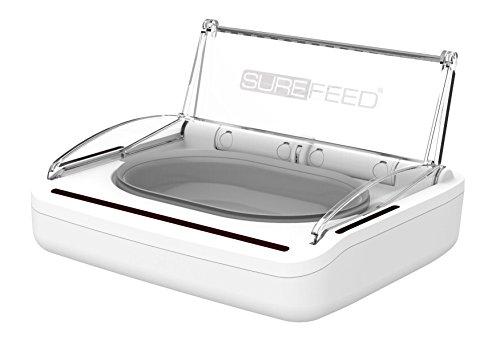




Boiled chicken and white rice serve as a gentle meal option for furry companions experiencing gastrointestinal upset. This blend is easy to digest and can help settle the stomach while providing necessary nutrients. Ensuring the chicken is skinless and unseasoned is crucial to avoid any additional irritation.
Another alternative includes pumpkin puree, which can aid with digestive issues. It’s rich in fibre and helps firm up loose stools. A small spoonful mixed into their regular food can work wonders. Just make sure it’s plain pumpkin, not the spiced pie filling.
Hydration is paramount during this time. Fresh water should always be accessible, and offering a low-sodium broth can encourage fluid intake. This is particularly beneficial if your pet is reluctant to drink. It’s vital to monitor their condition and seek veterinary advice if symptoms persist beyond a day or two.
Incorporating probiotics into their diet may also support gut health. These beneficial bacteria can help restore balance in the digestive system. There are specific formulations designed for canines, so consulting with a veterinarian for the right product is advisable.
Suitable Foods for Canines Facing Digestive Upset
Boiled chicken and rice stands out as a primary recommendation for pets experiencing digestive distress. This combination is easy on the stomach and provides necessary nutrients without overwhelming the system. Ensure the chicken is skinless and boneless, and cook it thoroughly before mixing it with plain white rice.
Another option is canned pumpkin, which is rich in fibre and can help firm up stools. A spoonful mixed into the regular food can be beneficial. This is a tip I discovered after observing my furry friend improve significantly after adding it to his meals during a stomach upset.
Plain boiled potatoes are also gentle and can serve as a carbohydrate source. Just make sure to avoid any seasonings or additives. Mashed sweet potatoes can offer a similar effect, providing nutrients while being easy on the digestive tract.
Low-fat cottage cheese is another gentle food that can be introduced. Its mild flavour and texture can appeal to an upset stomach while offering protein. I remember my dog enjoying this during a rough patch, making it a go-to in such situations.
For those considering commercial options, there are specific formulations designed for gastrointestinal issues. Products like these can be a great choice, and you can find some of the best dog foods for gastrointestinal problems to suit your pet’s needs.
Always consult with a vet before making any dietary changes, especially during health challenges. Each pet is unique, and what works for one may not for another, so keep an eye on their response to any new food introduced.
Hydration Solutions for Diarrhoea in Dogs
Electrolyte solutions specifically designed for canines can effectively replenish lost fluids and minerals. Ensure these products are free from sugar and artificial sweeteners. Consult your veterinarian for recommendations on suitable brands or formulations.
Homemade Electrolyte Solution
A simple mixture can be created at home:
- 1 litre of water
- 1 teaspoon of salt
- 2 teaspoons of sugar (or honey)
This blend aids in restoring hydration levels and can be offered in small amounts throughout the day.
Bone Broth Benefits
Bone broth serves multiple purposes. It not only hydrates but also provides nutrients. Make a simple broth by simmering bones in water for several hours, then strain and cool. Offer it warm, allowing your furry friend to lap it up comfortably.
Always monitor fluid intake. If your companion refuses to drink or shows signs of dehydration, such as lethargy or dry gums, seek veterinary assistance promptly.
When to Consult a Veterinarian
If your furry friend shows signs of severe distress, such as persistent vomiting, blood in stools, or lethargy lasting more than a day, seeking professional advice is crucial. Rapid weight loss or dehydration symptoms, like dry gums or excessive panting, also warrant immediate attention.
Signs Indicating Urgent Care
Should you notice recurring episodes of loose stools despite dietary adjustments, or if your pet appears to be in pain, don’t hesitate to reach out to your veterinarian. Sometimes, underlying health issues may contribute to gastrointestinal disturbances, requiring proper diagnosis and treatment.
Age and Health Factors
Young puppies and senior canines are more vulnerable. If a young pup experiences digestive upset, or if an older companion displays any alarming symptoms, contacting a vet swiftly can help prevent complications. Always trust your instincts; if something feels off, it’s better to be safe and seek professional help.
Home Remedies to Consider for Diarrhoea
Plain, unsweetened pumpkin puree can work wonders for upset stomachs. It’s high in fibre and helps absorb excess moisture in the intestines. Just a small spoonful mixed into your pet’s food can aid in firming up stools. I once had a scare with my own pup, and this simple remedy worked like a charm.
Bone Broth
Homemade bone broth serves as a comforting option, providing hydration and nutrients. Simmer bones (with no seasoning) for several hours to extract the goodness. Once cooled, strain the liquid and serve it warm. My furry friend always slurps it up, and it’s gentle on the digestive system.
Rice Water
Rice water, the starchy liquid left after boiling rice, can also be beneficial. It helps soothe the intestines and provides some hydration. After cooking rice, strain the liquid and let it cool before offering it to your companion. This helped my dog recover quickly after a bout of loose stools.






